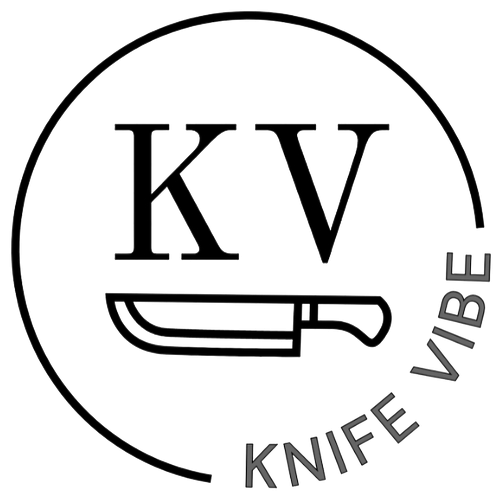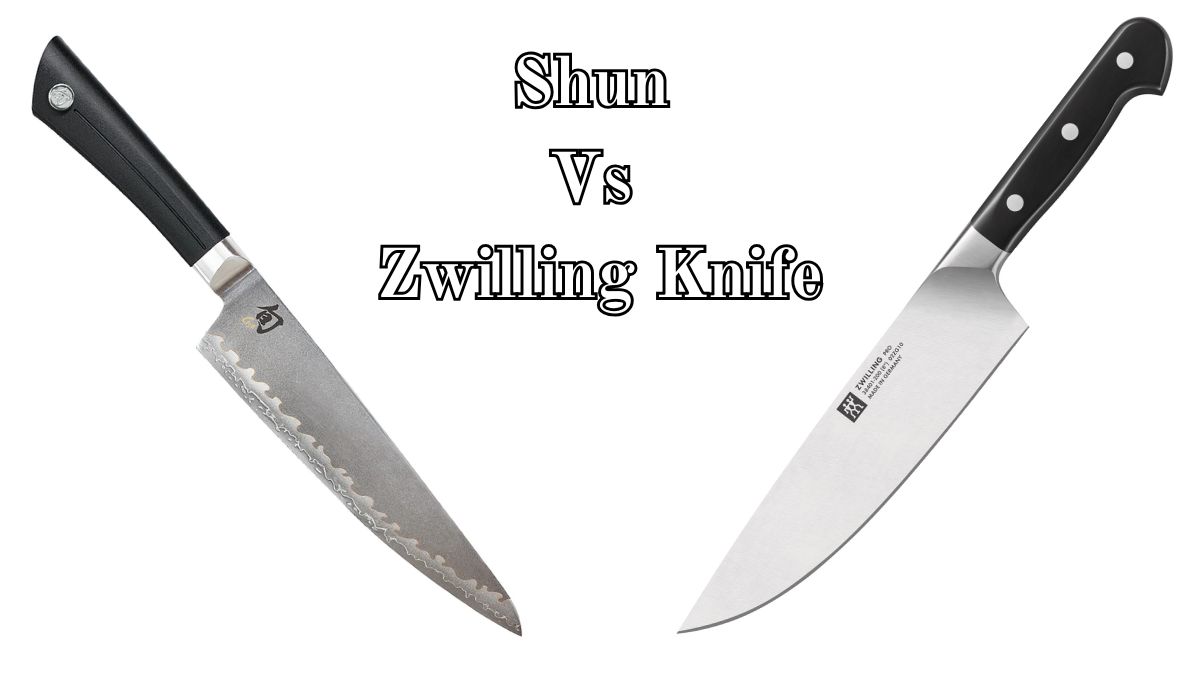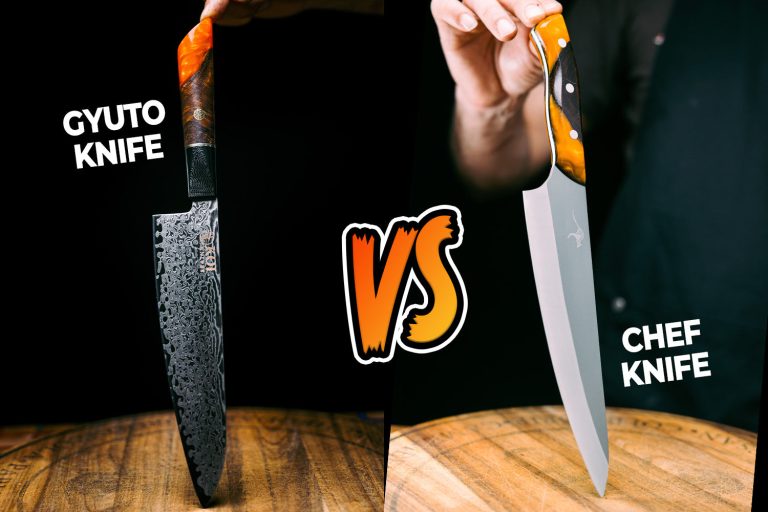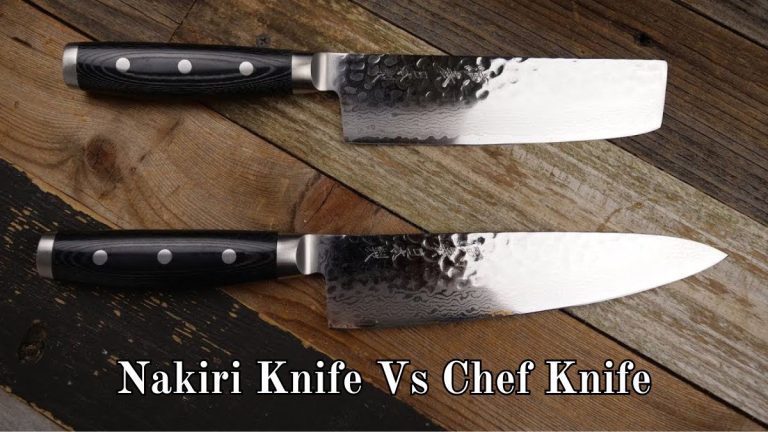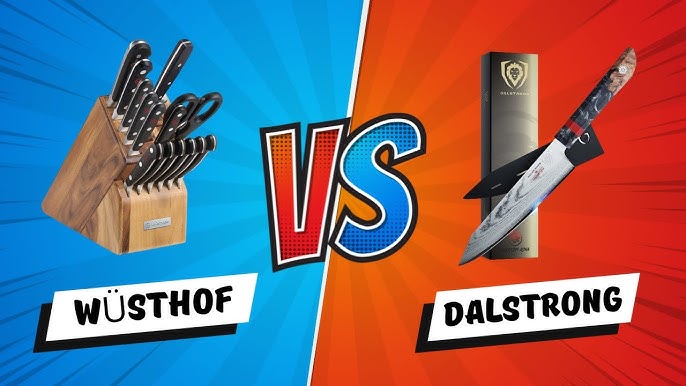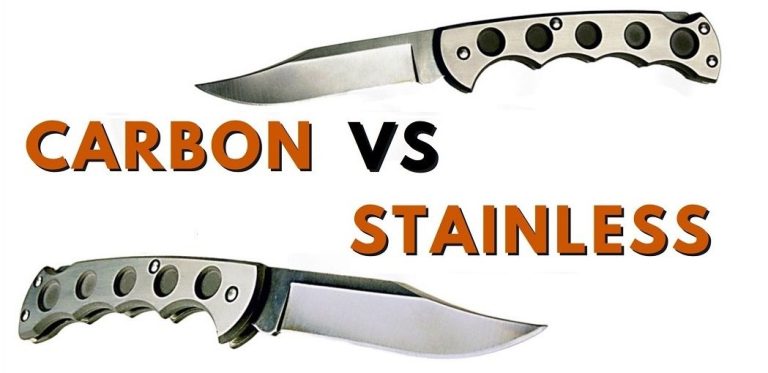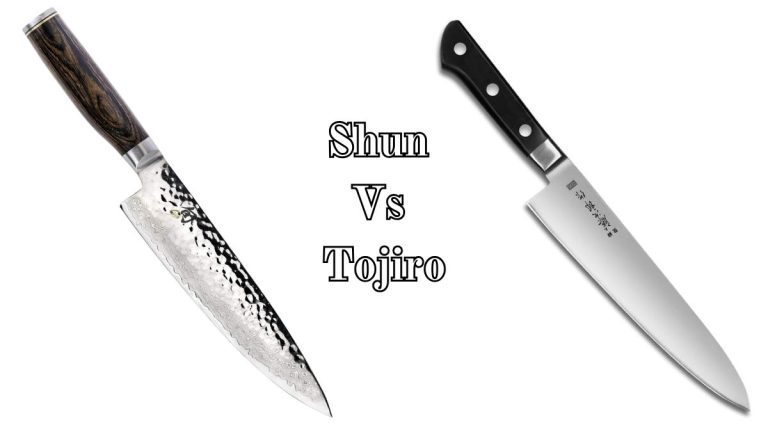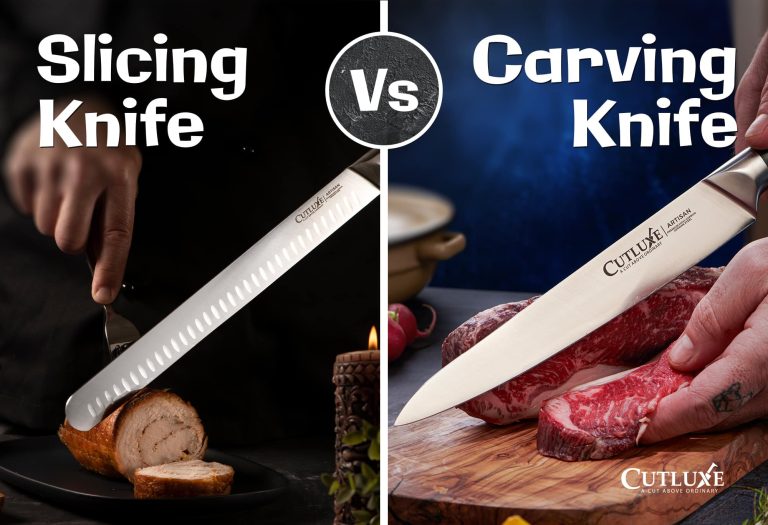Shun Vs Zwilling: Battle of the Best Kitchen Knives
Shun and Zwilling are two top names in the world of kitchen knives. Both brands are known for their quality and performance.
Choosing between Shun and Zwilling can be tough. Each brand offers unique features and benefits. Shun, a Japanese brand, is known for its sharp, precise blades and traditional craftsmanship. Zwilling, a German brand, boasts durability and modern design. In this blog post, we will explore the differences and similarities between these two renowned knife brands.
Understanding these will help you make an informed decision about which knife suits your cooking style best. Stay with us as we dive into the specifics of Shun and Zwilling knives. This comparison will guide you to the perfect choice for your kitchen.
Brand Histories
When comparing kitchen knives, Shun and Zwilling stand out as premium brands. Understanding their histories can help you choose the right knife for your kitchen. Let’s dive into the origins and heritage of these renowned brands.
Shun’s Origin
Shun Cutlery is a brand that originates from Japan. The word “Shun” means peak season in Japanese, representing the pinnacle of quality. These knives are crafted in Seki City, a hub for sword and knife making for over 800 years. The company behind Shun, Kai Group, has been in the blade-making business since 1908.
Shun knives combine traditional Japanese craftsmanship with modern technology. The blades are often made from high-quality VG-MAX steel. This ensures they are both sharp and durable. Handles are typically made from Pakkawood, offering a comfortable grip. Shun’s commitment to tradition and innovation makes their knives a popular choice among chefs worldwide.
Zwilling’s Heritage
Zwilling J.A. Henckels boasts a rich history dating back to 1731. Founded in Solingen, Germany, Zwilling is one of the oldest knife manufacturers in the world. The brand’s logo, the twin figures, symbolizes its commitment to quality and precision.
Zwilling knives are known for their German engineering. They use high-carbon stainless steel, ensuring strength and longevity. The blades are ice-hardened, enhancing their durability. Zwilling offers various knife collections, each designed for specific culinary needs. Whether you are a professional chef or a home cook, there is a Zwilling knife for you.
Handles are usually made from synthetic materials or wood. They are ergonomically designed for comfort and control. The company’s dedication to quality has earned it a loyal following across the globe.
Material Composition
Choosing the right knife involves understanding the materials used in its construction. The materials influence the knife’s performance, durability, and comfort. Let’s compare the material composition of Shun and Zwilling knives.
Blade Materials
Both Shun and Zwilling use high-quality materials for their blades. Here’s a detailed look:
| Brand | Blade Material | Properties |
|---|---|---|
| Shun | VG-MAX Steel |
|
| Zwilling | High Carbon Stainless Steel |
|
Handle Materials
The handle is where comfort and grip come into play. The materials used by Shun and Zwilling are different:
- Shun uses Pakkawood, a composite material made from wood and resin. It is durable, water-resistant, and offers a traditional look and feel.
- Zwilling often uses synthetic materials like polypropylene, which are durable and easy to maintain. These handles are ergonomic and offer a secure grip.
Each handle material has its own set of advantages. Choose based on your preference for feel and maintenance.
Design And Craftsmanship
When choosing between Shun and Zwilling knives, design and craftsmanship are crucial factors. Both brands are known for their quality and attention to detail, but they approach their designs in unique ways. Let’s dive into the design philosophies and craftsmanship of Shun and Zwilling knives.
Shun’s Design Philosophy
Shun knives are inspired by traditional Japanese blades. They combine modern technology with ancient techniques. The design focuses on precision and balance. Shun uses VG-MAX steel for the blades. This steel is known for its durability and sharpness. The handles are made from PakkaWood, which is both durable and beautiful.
Each Shun knife is handcrafted. Skilled artisans create these knives in Seki City, Japan. The process includes over 100 steps. The result is a knife that is not only functional but also a piece of art. Shun knives often feature a Damascus pattern on the blade. This pattern is created by layering different types of steel, which also adds strength.
Zwilling’s Craftsmanship
Zwilling knives have a German heritage. They are known for their precision engineering and durability. Zwilling uses a special type of stainless steel called Friodur. This steel is ice-hardened, making it extremely hard and corrosion-resistant. The blades are forged from a single piece of steel, which ensures strength and balance.
The handles of Zwilling knives are designed for comfort and control. They are usually made from synthetic materials or wood. Zwilling’s manufacturing process combines traditional techniques with modern technology. Each knife goes through rigorous quality control to ensure it meets high standards. This attention to detail makes Zwilling knives a reliable choice for both professional chefs and home cooks.
Performance And Sharpness
In the world of kitchen knives, performance and sharpness are key. Both Shun and Zwilling offer high-quality blades. Let’s see how they compare in terms of cutting precision and edge retention.
Cutting Precision
Shun knives are known for their razor-sharp edges. Their blades are often made from high-carbon stainless steel. This material allows for a finer edge. Shun knives excel in slicing vegetables and meats with ease. The thin blades make them ideal for delicate cuts.
On the other hand, Zwilling knives also offer impressive cutting precision. Zwilling uses a special formula steel. This steel provides a good balance of hardness and flexibility. Zwilling knives are great for both heavy and fine tasks. They are reliable for chopping, dicing, and mincing.
Edge Retention
Edge retention is crucial for maintaining sharpness over time. Shun knives typically feature a harder steel. This hardness allows the edge to stay sharp for longer. Shun’s advanced heat treatment process also plays a role. It enhances the durability of their blades.
Zwilling knives, while slightly softer, have excellent edge retention. They use a precision forging process. This process ensures the blade’s resilience. Zwilling knives are less prone to chipping. They maintain their edge well through regular use.
Variety And Range
Choosing the right kitchen knife can be a daunting task. Both Shun and Zwilling offer a wide variety of knives. Each brand has its unique range. Let’s explore their offerings.
Shun’s Knife Series
Shun knives are known for their Japanese craftsmanship. They have several distinct series. The Classic series is popular. It features a VG-MAX steel core. The Premier series has a striking hammered finish. It offers a unique look. Shun also has the Kanso series. This series emphasizes simplicity and functionality. Each Shun series caters to different needs. From professional chefs to home cooks.
Zwilling’s Knife Collections
Zwilling knives are rooted in German tradition. They offer a wide range too. The Professional “S” series is a favorite. It boasts precision and durability. The Four Star series is ergonomic. It provides comfort during long use. Zwilling also offers the Twin Signature series. These knives are lightweight and sharp. Each collection is designed for specific tasks. Zwilling ensures there is a knife for every requirement.

Price And Value
When choosing between Shun and Zwilling knives, price and value are key factors. Understanding the cost and the value each brand offers can help you make an informed decision. Let’s dive into a detailed comparison.
Cost Comparison
Shun knives are often more expensive than Zwilling. The reason lies in their craftsmanship. Shun knives are hand-made in Japan, using traditional techniques. This increases their price. Here’s a simple breakdown:
| Brand | Price Range |
|---|---|
| Shun | $150 – $500 |
| Zwilling | $50 – $300 |
As the table shows, Shun knives have a higher starting price. Zwilling offers more affordable options, making them accessible to a broader audience. Both brands offer sets and individual pieces, so you can find a knife that suits your budget.
Value For Money
When considering value for money, it’s important to look at durability, performance, and maintenance. Shun knives are known for their sharpness and edge retention. The VG-MAX steel used in Shun knives ensures they stay sharp for longer periods.
- Shun: High-quality steel, long-lasting sharpness, traditional craftsmanship.
- Zwilling: Durable, balanced, easy to maintain, German engineering.
Zwilling knives also provide great value. They are durable and easy to maintain. The German engineering behind Zwilling ensures a balanced, comfortable grip. Here are some factors to consider:
- Frequency of use
- Maintenance willingness
- Budget
If you want a knife that stays sharp longer, Shun might be worth the extra cost. If you prefer a more budget-friendly option with easy maintenance, Zwilling is a great choice.

Customer Reviews
Customer reviews provide valuable insights into the real-world performance of Shun and Zwilling knives. Users share their experiences, highlighting the strengths and weaknesses of each brand. These reviews help potential buyers make informed decisions based on actual feedback.
Shun User Feedback
Shun knives receive praise for their sharpness and design. Many users love the precision and quality of the blade. The Japanese craftsmanship stands out, making it a favorite for many chefs. Some users mention the knives require regular maintenance to keep their edge. Despite this, the overall sentiment is positive. Customers appreciate the balance and comfort during use. Shun’s aesthetic appeal also garners attention, making it a preferred choice for kitchen enthusiasts.
Zwilling User Experiences
Zwilling knives are known for their durability and performance. Users commend the robust build and long-lasting sharpness. The German engineering behind Zwilling knives ensures a reliable cutting experience. Many customers appreciate the ease of maintenance and the sturdy feel. Some feedback highlights the knives’ weight as a positive feature, providing stability. Zwilling’s reputation for quality and reliability shines through in user reviews, making it a trusted brand among home cooks and professionals alike.

Frequently Asked Questions
What Are The Main Differences Between Shun And Zwilling?
Shun knives are Japanese and known for their sharpness and precision. Zwilling knives are German, known for durability and balance.
Which Brand Is More Durable, Shun Or Zwilling?
Zwilling knives are generally more durable due to their German engineering. Shun knives, while sharp, require more maintenance.
Are Shun Knives Better For Precision Cutting?
Yes, Shun knives are better for precision cutting. Their Japanese craftsmanship ensures a sharp, fine edge for detailed tasks.
Do Zwilling Knives Require Less Maintenance Than Shun?
Yes, Zwilling knives require less maintenance. Their durability and sturdiness make them easier to care for than Shun knives.
Conclusion
Choosing between Shun and Zwilling depends on your needs and preferences. Shun offers precision and elegance for those who love Japanese craftsmanship. Zwilling provides durability and versatility with German engineering. Both brands deliver top-notch quality and performance. Think about your cooking style and budget.
Either way, you will enjoy a superior kitchen experience. Happy cooking!
